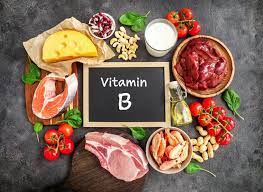Vitamin B12 is a water-soluble nutrient that’s required for many crucial processes in your body.
The ideal dose of vitamin B12 varies based on your gender, age, and reasons for taking it.
This article examines the evidence behind the recommended dosages for B12 for different people and uses.
Vitamin B12 is an essential nutrient that plays a critical role in several of your body’s processes.
It’s necessary for proper red blood cell production, DNA formation, nerve function, and metabolism.
Vitamin B12 also plays a key role in reducing levels of an amino acid called homocysteine, high levels of which have been linked to chronic conditions like heart disease, stroke, and Alzheimer’s.
Additionally, vitamin B12 is important for energy production. However, there’s currently no evidence that taking B12 supplements increases energy levels in people who are not deficient in this nutrient.
Vitamin B12 is found mostly in animal products, including meats, seafood, dairy products, and eggs. It’s also added to some processed foods, such as cereal and non-dairy milk.
Because your body can store B12 for several years, serious B12 deficiency is rare, but up to 26% of the population may have a mild deficiency. Over time, B12 deficiency can lead to complications like anemia, nerve damage, and fatigue.
Vitamin B12 deficiency can be caused by not getting enough of this vitamin through your diet, problems with absorbing it or taking a medication that interferes with its absorption.
The following factors may put you at a higher risk of not getting enough vitamin B12 from diet alone:
- being over 50 years old
- gastrointestinal disorders, including Crohn’s disease and celiac disease
- surgery on the digestive tract, such as weight loss surgery or bowel resection
- metformin and acid-reducing medications
- specific genetic mutations, such as MTHFR, MTRR, and CBS
- regular consumption of alcoholic beverages
If you’re at risk of deficiency, taking a supplement may help you meet your needs.
Suggested dosages
The recommended daily intake (RDI) for vitamin B12 for those over 14 is 2.4 mcg.
However, you may want to take more or less, depending on your age, lifestyle, and specific situation.
Note that the percent of vitamin B12 your body can absorb from supplements is not very high — it’s estimated that your body only absorbs 10 mcg of a 500-mcg B12 supplement.
Here are some recommendations for B12 dosages for specific circumstances.
Adults under age 50
For people over 14, the RDI for vitamin B12 is 2.4 mcg.
Most people meet this requirement through diet.
For example, if you ate two eggs for breakfast (1.2 mcg of B12), 3 ounces (85 grams) of tuna for lunch (2.5 mcg of B12), and 3 ounces (85 grams) of beef for dinner (1.4 mcg of B12), you would consume more than double your daily B12 needs.
Therefore, supplementing with B12 is not recommended for healthy people in this age group.
However, if you have any of the factors described above that interfere with vitamin B12 intake or absorption, you may want to consider taking a supplement.
Adults over age 50
Older people are more susceptible to vitamin B12 deficiency. While relatively few younger adults are deficient in B12, up to 62% of adults over the age of 65 have less than optimal blood levels of this nutrient.
As you age, your body naturally makes less stomach acid and intrinsic factor — both of which can affect the absorption of vitamin B12.
Stomach acid is necessary to access the vitamin B12 found naturally in food, and an intrinsic factor is required for its absorption.
Due to this increased risk of poor absorption, the National Academy of Medicine recommends that adults over the age of 50 meet most of their vitamin B12 needs through supplements and fortified foods.
In one 8-week study in 100 older adults, supplementing with 500 mcg of vitamin B12 was found to normalize B12 levels in 90% of participants. Higher doses of up to 1,000 mcg (1 mg) may be necessary for some.
SUMMARY
Optimal dosing of vitamin B12 varies by age, lifestyle, and dietary needs. The general recommendation for adults is 2.4 mcg. Older adults, as well as pregnant and breastfeeding women, require higher doses. Most people meet these needs through diet alone, but older adults, people on strict plant-based diets, and those with digestive disorders may benefit from supplements, though dosages vary based on individual needs.
Post time: May-24-2022







